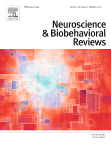 October, apparently, is “studies of retractions month.” First there was a groundbreaking study in PNAS, then an NBER working paper, and yesterday PLoS Medicine alerted us to a paper their sister journal, PLoS ONE, published last week, “A Comprehensive Survey of Retracted Articles from the Scholarly Literature.”
October, apparently, is “studies of retractions month.” First there was a groundbreaking study in PNAS, then an NBER working paper, and yesterday PLoS Medicine alerted us to a paper their sister journal, PLoS ONE, published last week, “A Comprehensive Survey of Retracted Articles from the Scholarly Literature.”
The study, by Michael L. Grieneisen and Minghua Zhang, is comprehensive indeed, reaching further back into the literature than others we’ve seen, and also including more disciplines: Continue reading Most retraction notices don’t involve research misconduct or flawed data: new study








